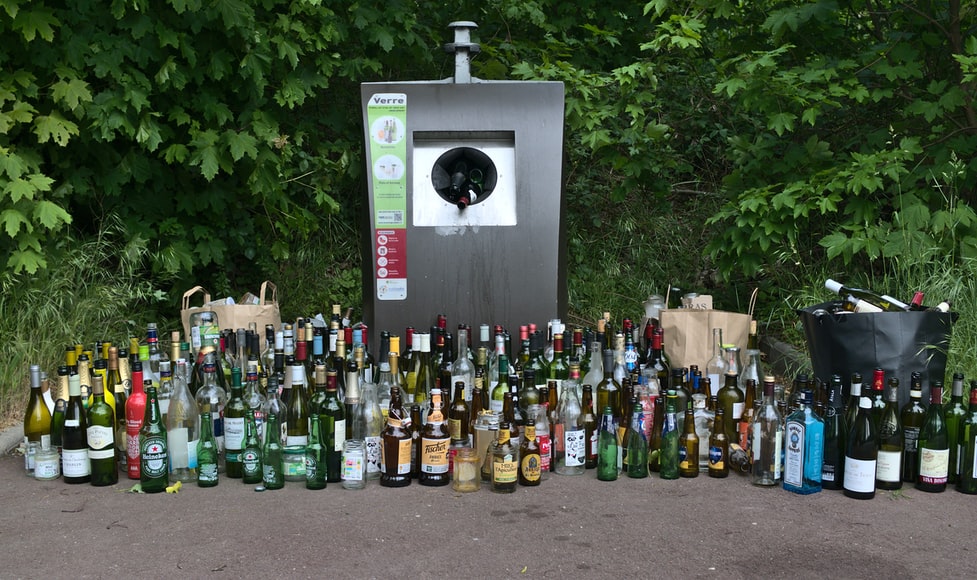Here’s What No One Tells You About Your Electronics Disposal Company

Whether it’s a little business managing purchase orders and also financial resources or a gigantic lawful office handling delicate suits for high-profile clients, every one of these instances is joined by the requirement for a trustworthy and reliable electronics disposal company.
This process is known as IT possession disposition (ITAD) as well as e-waste recycling options. While recycling is a green process, there are some darker sides to this Green image.
Let’s see first what the electronics disposal is.
What Is Electronic Disposal?

E-waste or electronics disposal is electronic products that are unwanted and not working. Most of these products are at the end of their life cycle. Yet, every year over 50 million electronic disposals are produced. And as a result of plastics, the earth is dealing with more challenges with electronic disposal and electronic wastes.
Since 1970 scientists have understood the challenges. And wanted to find a way to reuse all unwanted electronic parts. Hence now we have many companies which are specially working with the unused parts of the electronic products.
How Do Electronic Disposal Usage Concepts Come?
Meetings with electronic devices and photovoltaic panel recycling sector specialists clarified the challenges the industry faces with photovoltaic (PV) components, which can be stocked, unloaded, abandoned, or unlawfully landfilled just as CRTs have in a number of instances.
Partly to avoid potential mismanagement by certified reusing facilities, the not-for-profit group Sustainable Electronics disposal recycling International (SERI) is working on adding photovoltaic panels to its R2 e-scrap qualification criterion.
A Complex Mix Of Electronic Products
About 94% of the market available electronic panels are made with crystalline silicon. That has PV cells are having silicon-made semiconductors, according to the U.S. Department of Energy. Created an enduring number of electronic elements and electronics disposal for years, photovoltaic panels are made up of interconnected PV cells that are encased in plastic.
And sandwiched between a glass layer and a solid back sheet. The common panel has a steel framework, generally lightweight aluminum, and also external copper electrical wiring.
Solar panel processors should bill costs to approve solar panels to counter their processing expenses. Disposers have invested up to $25 per panel in handling expenses to yield between $2 and $4 in worth from lightweight aluminum, copper, lead, silver, glass, and silicon.
There remains a monetary motivation for waste generators to pay to reuse panels when the choice is hazardous waste disposal, but that takes advantage of slides away when less costly municipal solid waste landfills are a choice.
Problems Around ‘Unsafe’
Complicating the end-of-life equation is the truth that some kinds of panels are thought-about hazardous as a result of their focus on harmful metals. The Environmental Control created a reality sheet detailing the different kinds that may be thought-about dangerous, keeping in mind that non-hazardous panels can be gotten rid of in municipal solid waste electronics disposal landfills.
As a result of the hazardous steels as well as additional handling demands entailed, we suggest that customers with cadmium-containing thin-film cells send them straight to specialized recycling.
Mostly, other panels aren’t contaminated materials. Yet they still require to be managed thoroughly. Normal PV components do not have a lot of dangerous ramifications, but similar to electronic devices, we absolutely do not desire them to fill up our garbage dumps.
Resale Market Is Rising
Solar panels have been developed to generate electricity for decades, so marketing a utilized panel may show up the ideal option economically as well as eco, and that exchange does happen. Electronics disposal companies and recyclers have the ability to examine the power result of used panels so they can be re-sealed.
And also, when specialists do de-installs and also accumulate and ship solar panels, what shows up is typically an inequality of various types of panels, making it challenging to keep a consistent supply.
Conclusion:
Every electronics disposal matters. Think about the waste. Throwing out your unused cell phone is not a solution. Eventually, entire electronic products are not in a functioning mod. But some of the parts are still in a good state. The electronics disposal recycling companies are shorting out these all things and then designing the new products.
Read Also:











